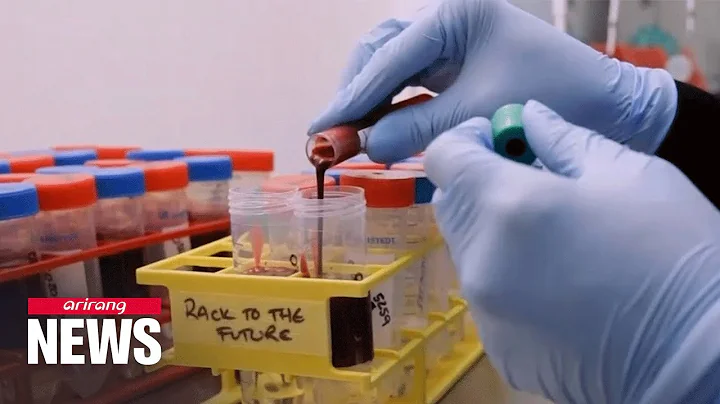
Source: Online Travel (ID: lianxianchuxing) Author: Zhou Xiongfei
In 2022, recalls in the car industry will continue to occur frequently.
Recently, Beijing Benz Automobile Co., Ltd. (hereinafter referred to as " Beijing Benz ") filed a recall plan with the State Administration for Market Regulation. It plans to recall a total of 10,104 EQC electric vehicles on August 15 this year. Due to the large number of recalls and the fact that this model is the first new energy product launched by Mercedes-Benz in the Chinese market, this recall information has attracted much attention in the industry.

Mercedes-Benz recall announcement, screenshot from the official website of the State Administration for Market Regulation
Coincidentally, on the same day that Mercedes-Benz submitted the recall plan, Tesla (Shanghai) Co., Ltd. also filed a recall plan with the State Administration for Market Regulation. According to the plan, the recall will be carried out A total of 26,047 domestic Model 3 and Model Y models.
It should be noted that although Beijing Benz admitted that this large-scale recall was caused by defects in vehicle manufacturing, it also "passed the blame" for the defect to the supplier in the recall announcement, believing that it was "There are manufacturing deviations in the parts provided by the supplier."
Similar to Mercedes-Benz, Tesla After submitting the recall plan, according to Securities Times report, Tesla's recall may be related to its supplier Sanhua Intelligent Control. Regarding this speculation, Tesla only said that "there is no confirmation of information for the time being", while Sanhua Intelligent Control issued a statement saying that it had nothing to do with it.
Although Tesla did not indicate in the recall information that it was the supplier's responsibility, Tesla has had precedents for "passing the blame" on suppliers.
In December last year, Tesla submitted a recall information to the State Administration for Market Regulation, planning to recall a total of 21,599 domestic Model Y models. As for the reason for the recall, Tesla stated that it was "due to supplier manufacturing reasons" and directly "dumped" the responsibility to the supplier.
Such "blame-shifting" is actually common in the automotive industry.
In October 2020, WM Motor submitted recall information to the State Administration of Supervision and Administration due to successive spontaneous combustion accidents. In this information, WM attributed the frequent spontaneous combustion of vehicles to "the battery supplier's production of battery cells." Impurities were mixed in during the process."
Last year, Toyota Motor also "passed the responsibility" of the recall to relevant suppliers in a recall plan submitted to the State Administration of Supervision and Administration.
Looking at it now, whether it is new energy car companies such as Tesla and WM Motor, or established car companies such as Mercedes-Benz and Toyota , they have all "passed the responsibility" of recall to relevant suppliers. Why do car companies habitually shift the responsibility to suppliers during recalls? Who has greater responsibility for recalls, car companies or suppliers?
1 It is not surprising that car companies are "blaming"
that the Mercedes-Benz EQC will be recalled.
On January 18 this year, a joint statement including 68 Mercedes-Benz EQC owners circulated on the Internet. In the statement, these owners believed that the motors in the Mercedes-Benz EQC models were defective and requested Mercedes-Benz officials to start investigating the defects as soon as possible. Recall procedures to eliminate safety hazards.
Since then, Mercedes-Benz officials did not immediately respond to this statement. According to " Finance ", some of the 68 car owners have formed relevant teams and are preparing to defend their rights against Mercedes-Benz.
But as the rights protection incident against Mercedes-Benz was further fermented, Mercedes-Benz officials filed a recall plan with the State Administration for Market Regulation on the 18th of this month. According to the plan, some EQC electric vehicles with production dates between November 30, 2018 and December 15, 2021 will be recalled starting from August 15 this year, a total of 10,104 vehicles.
According to Wired Travel, the EQC model is the first pure electric model launched by Mercedes-Benz in the Chinese market. The model has been officially launched in November 2019 and is produced by Beijing Benz.According to China Association of Automobile Manufacturers data, domestic sales of EQC in 2020 and 2021 were 3,863 and 6,098 units respectively, totaling 9,961 units.
This also means that Beijing Benz’s recall of the EQC model can be regarded as a recall of two years of sales of this model in the domestic market.
Faced with such a large-scale recall, Mercedes-Benz "passed the blame" to its suppliers.
According to the official website of the Defective Product Management Center of the State Administration for Market Regulation, Mercedes-Benz officially described the reason for the EQC recall as "Due to the supplier's production deviation, the cooling system in the electric drive module of some vehicles within the scope of this recall There may be insufficient sealing, causing coolant to leak."

Mercedes-Benz recall information details, screenshot from the official website of the State Administration for Market Regulation's Defective Product Management Center
Mercedes-Benz also stated that if the coolant micro-infiltrates into the motor, it will cause damage after long-term use. It may reduce the insulation resistance value of the high-voltage system, and in extreme cases the vehicle may not be able to start. Coolant leakage does not meet the requirements for cooling system sealing in relevant national mandatory standards. Under extreme conditions, the output power of the vehicle's electric drive module will be reduced, posing safety risks.
It is worth noting that Mercedes-Benz’s recall of defective EQC models is scheduled for August this year, not starting today.
Regarding this point, Mercedes-Benz officials mentioned that "because the electric drive modules involved in this recall are produced by the overseas factories of relevant suppliers. Affected by various uncertain factors in the current overseas market, including the epidemic, the current reserve of this accessory It is temporarily unable to meet the spare parts reserve for immediate implementation of the recall. Therefore, the recall will not be fully launched until August 15."
Before the official launch of the recall, in order to appease consumers, Mercedes-Benz said on the one hand that these core components will only be replaced and not repaired; on the other hand, It also promised that after the recall measures are implemented, the electric drive module involved will be extended from the existing warranty period of 8 years and 160,000 kilometers (whichever comes first) to a warranty period of 10 years and 250,000 kilometers (whichever comes first). are limited).
Mercedes-Benz is not alone in dumping the responsibility for recalls on suppliers.
In December last year, Tesla submitted a recall plan to the State Administration of Supervision and Administration that quickly became the focus of the industry. In this recall plan, Tesla announced that the recall production date would be from February 4, 2021 to A total of 21,599 partially domestic Model Y electric vehicles were sold during October 30, 2021.
Regarding recalls, Tesla can be said to be an "old player", but the reason why that recall attracted so much attention was not only because the number of recalls was too large, but also because the recalled model was the Model Y, which was only launched in China at the beginning of last year. .
After New Year’s Day last year, Tesla launched the Model Y model in the domestic market with a high profile. For a time, this model was regarded by the outside world as “Tesla’s other big killer.”
I have to say that the sales volume of this model is indeed remarkable. According to data from the Passenger Car Association, the total sales volume of Tesla Model Y from January to December last year was 200,131, ranking first in the sales list of domestic medium-sized new energy SUV segments for several consecutive months.
However, judging from the number of recalls of this car at the end of last year, it is equivalent to one vehicle having problems for every 10 Model Ys sold.
In terms of the reason for the recall, Tesla "shifted" the responsibility to the supplier: "Due to the supplier's manufacturing reasons, the strength of the front and rear steering knuckles may not meet the design requirements. During the use of the vehicle, the steering knuckles may Deformation or breakage may cause the suspension link to come out of the steering knuckle under extreme stress, affecting vehicle driving control, increasing the risk of a collision, and posing safety risks."

Tesla recall announcement, screenshot from the national market The official website of the State Administration of Supervision and Administration
Due to this liability accusation, the closing price of Ningbo Top Group , the supplier mentioned in the recall plan, fell by 8.8%.Subsequently, Ningbo Tuopu Group also "backed" the "pot" "thrown" by Tesla, stating that "due to the insufficient water level of the quenching tank in a certain heat treatment production line, some products were not completely immersed in the quenching liquid . , resulting in the strength of the steering knuckle may not meet the design requirements."
WM Motor, also a new energy vehicle company, has also had the experience of "passing the blame" to suppliers.
At the end of October 2020, due to frequent spontaneous combustion accidents of its model EX5, WM Motor had to file a recall plan with the State Administration of Supervision and Administration. As for the reason for the recall, WM stated that "due to impurities mixed into the battery cell supplier during the production process, the power Abnormal lithium precipitation occurs in the battery. In extreme cases, it may cause a short circuit in the battery cell, causing thermal runaway of the power battery and the risk of fire, which poses a safety hazard."
A year later, such a "blame-shifting" was also performed in the Toyota recall. In early June last year, Toyota Motor filed a recall plan with the State Administration of Supervision and Administration. In the recall information, it also attributed the cause of the recall to "due to manufacturing deviations in the assembly process of internal components of the high-pressure fuel pump at the parts production plant."

Toyota Motor Recall announcement, screenshot from the official website of the State Administration for Market Regulation
Judging from the above information, from WM and Toyota to Tesla and Mercedes-Benz, they all "passed the blame" to the corresponding suppliers in the recall filing, so that This action seems to have become a "habit" for car companies in the industry. Behind this, the status difference between car companies and suppliers is also revealed.
2 Car companies are strong, but suppliers are helpless.
Dependence and competition can be summarized as the relationship between vehicle companies and parts suppliers.
Beginning in 1900, the global automobile industry began to enter a period of development. European and American car companies such as Ford, General Motors, and Volkswagen, as well as Japanese car companies such as Toyota, Honda , were established one after another. At first, the business of these traditional car companies basically included the full cycle industry from design, to parts production and assembly, to final sales.
After experiencing the baptism of the World War and World War II war, the national income of European and American countries has increased, and the demand for cars has begun to surge. At that time, the scale of "one person (adult) per car" was almost achieved in the United States. Subsequently, this wave of demand for automobiles also swept across Western Europe, Asia and other countries.
Stimulated by strong demand, car companies such as Ford and GM began to think about how to further improve the efficiency of car manufacturing.
In order to improve the efficiency of car manufacturing, car companies have introduced automated production lines. At the same time, they have also begun to outsource some unimportant parts to other small companies for production, and focus on the design and assembly of the entire vehicle themselves.

Ford's first assembly line, picture source Ford official website
In this regard, with the development of the global automobile industry, a brand new industry was created - the auto parts supplier industry, Continental, Bosch and ZF, etc. Global parts suppliers came into being and soon began to cooperate with many car companies.
Generally speaking, vehicle manufacturers and component suppliers jointly develop products in the form of cooperation. The vehicle manufacturer is responsible for the overall design and assembly of the vehicle, and the supplier is mainly responsible for the development, manufacturing and supply of relevant components with qualified quality. products are delivered to car companies.
This process looks like the two parties are collaborating on an equal basis, but in fact they are not equal. "Due to the different division of labor between the two partners in vehicle manufacturing, car companies have always been more powerful than suppliers." Li Xiao, the sales manager of a domestic head parts supplier, said bluntly to Wired Travel.
This can be clearly seen from the process of signing contracts between car companies and suppliers.
According to Li Xiao, in recent years, car companies have basically adhered to the principle of "shopping around" when selecting suppliers. Simply put, car companies will formulate corresponding parts according to the design and manufacturing requirements of the entire vehicle. Product requirements (including component technical specifications, delivery time and other information) are released to many suppliers, and the number is generally around 5-15.
After suppliers receive product requirements, they will formulate corresponding feasibility plans and specific quotations based on their own capabilities and feedback them to the car companies. Then the car companies will compare the plans and quotations submitted by the suppliers in order to decide on the final supply. Business or enter the next round of screening.

The general process of automobile supplier project bidding
"Selection processes like this are basically led by car companies. The time course of the entire process will be adjusted according to the size and difficulty of the project. For small projects, it will take several months. For large projects, such screening may even last up to half a year," Li Xiao said.
It is worth noting that in this process, powerful car companies will further lower the suppliers’ final project quotations.
Among them, some European and American car companies will require suppliers to disclose the various costs of their parts, such as wage costs, material costs, etc. These car companies will then hand over the obtained data to another supplier as a bargaining chip to suppress prices.
In such a demanding process, if the suppliers participating in the bidding cannot make compromises and concessions on price, they will be eliminated quickly.
According to a survey by Peter Schreiber & Partner, a German automotive industry consulting firm, during bargaining with OEMs, about half of the suppliers gave final quotes that were about 30% lower than the price they originally proposed.
The reason why car companies are so strong is because they can choose from more than one or two suppliers. This phenomenon is especially true for mainstream car companies.
According to Gasgoo data, FAW Toyota has hundreds of domestic suppliers. For example, navigation system suppliers include Denso, Yili Electronics and Aidao; in terms of tires, there are also There are three suppliers: Sumitomo , Zhengxin and Bridgestone .

FAW Toyota parts supply chain, picture source Gasgoo Auto
With the development of the new energy vehicle industry, from the perspective of the industry, new energy vehicle companies may be more obvious than traditional car companies in the face of the strong attitude of suppliers.
Cui Dongshu, secretary-general of the National Passenger Car Market Information Joint Association, once said that the upstream supply chain of the automobile industry values the future of the car companies most. Which brand has more development potential in the future, suppliers will pay more attention to it, so the leading car manufacturing company The priority of new forces is ahead of traditional car companies.
In comparison, Tesla has no fewer domestic parts suppliers than FAW Toyota. Among them, it covers power batteries, vehicle stamping dies, body sheet parts, interior decoration, electronic equipment, etc. Taking coolant as an example, there are two supplier companies: Xinjiang Tianye and Donghua Technology . In terms of battery cathode material components, there are Shanshan Co., Ltd. , Tianqi Lithium Industry and GEM and other 5 companies.
According to Li Xiao, in the current new energy parts market, in fact, even CATL, which has a monopoly on the market, cannot guarantee that more car companies will choose it as a designated supplier. The reason behind this The reason is also because there are too many opponents in the Ningde era.
Connected Travel once wrote in "Amid the drastic changes in the power battery industry, what can CATL do to maintain its "number one" status? This is explained in detail in the article.
Perhaps it is precisely because car companies have the decision-making power in the selection of parts supply chains that car companies are faced with the phenomenon of habitually "passing the blame" in recalling suppliers.
"Since car companies such as Tesla, Mercedes-Benz and Toyota have sufficient sales volume and their own traffic, parts suppliers need to make some efforts to enter their supply systems, and when faced with recalls, they "pass the buck" "Parts suppliers are in a relatively passive situation when it comes to things like this," Wang Xianbin of Gasgoo Automotive Research Institute told Wired.com.
Although this is the reality, many people are still thinking about a question - vehicle recalls, who should be responsible for this between the car companies and suppliers?
3 Vehicle recall, who should pay for it?
To explain this problem, let’s first look at the Tesla recall incident at the end of last year.
According to the above, Tesla’s recall announcement at the end of last year believed that the reason for the recall was mainly due to manufacturing reasons by the supplier, which led to the strength of the front and rear steering knuckles possibly not meeting the design requirements. Through these black and white words, the responsibility is directly "dumped" to the relevant suppliers.
Regarding this "passing the blame", Top also admitted in a subsequent statement that "due to insufficient water level in the quenching tank of the heat treatment production line, the strength of the steering knuckle did not meet the design requirements. According to the company's test results, this batch The probability of defects in suspect products is about 0.2%-1.0%."

The recall announcement of supplier Tuopu, screenshot from the announcement
Based on the announcement information from the two parties, Tesla believes that the responsibility for the recall lies with the supplier Tuopu. Tuopu immediately assumed this responsibility. Therefore, in the eyes of the outside world at that time, Topu, as the supplier, had a greater responsibility in that recall.
But this does not mean that Tesla does not need to bear responsibility for the recall.
According to car manufacturing engineer Zhao Bin, parts like the steering knuckle belong to the vehicle chassis structure. In terms of design, car companies like Tesla lead the design and demand, while suppliers like Tuopu Only responsible for manufacturing.
This point has also been confirmed in some media reports. According to observer website , a Top employee was quoted as saying that Tesla has different requirements from other domestic OEMs for components such as steering knuckles, so the design is dominated by Tesla.
In addition to design, Tesla also assumes the responsibility of testing products delivered by suppliers.
According to Zhao Bin, currently mainstream car companies will have a quality inspection department or Supplier Quality Engineer (SQE) position within them, which is mainly responsible for the research, management, supervision, etc. of technical quality and service quality. Inspection, inspection, analysis, identification and other work.

Take the Tesla steering knuckle as an example. After Tuopu delivers the manufactured steering knuckle to Tesla, the latter’s quality inspection department will randomly inspect the delivered products in batches. The random inspection will generally use destructive methods. During testing, once it is found that the hardness of the sampled products does not meet the requirements, it will be recorded. If the unqualified products exceed the yield requirements, the batch of products will be returned.
If defective parts "escaped" inspection during the random inspection before getting into the car, the car company can later find the problem during the testing process before the vehicle is put on the market.
Looking at it this way, Tesla needs to be responsible for everything from the design of parts, to the random inspection of parts after delivery, to the testing of vehicles before they are put on the market. And this principle also applies to the recalls of Mercedes-Benz and Toyota.
"For recalls, both Tesla and other car companies need to be responsible for them together with their suppliers. The responsibility cannot be simply passed on to the suppliers." Wang Xianbin said.
In fact, car companies, especially new energy car companies, have still brushed off their own responsibilities in the recalls in the past two years. There is also their own "selfishness" behind this.
Take Tesla as an example. After announcing the recall plan on December 3 last year, its stock price closed at $1,014.97 per share that day, a drop of 6.42%. On the 18th of this month, Tesla announced the recall again. After Model Y and Model 3 models were released, its closing stock price also fell that day, closing at $856.98 per share, a decrease of 2.21%.
In addition to affecting stock prices, recall information will also affect the reputation of corresponding car companies among consumer groups.
According to Zhang Xiang, a researcher at the Automotive Industry Innovation Research Center of North China University of Technology, with the development of the new energy vehicle industry, consumers and the market will pay more attention to the reputation of a new energy vehicle company, so that after frequent recall rumors, it is bound to It will affect the performance of these car companies in the market.
According to the industry's view, in the future, car companies may still ignore their responsibilities in recalls. But fortunately, relevant national departments are currently further strengthening the requirements and control of the responsible parties in the recall incident.

According to , improve design and reduce risks.
In addition, the State Administration for Market Regulation has established a new energy vehicle accident reporting system, requiring new energy vehicle manufacturers to implement product safety responsibilities and proactively report accident information; standardize the application of vehicle remote upgrade (OTA) technology in recalls, and clarify production OTA filing obligations, carry out safety assessments, ensure that automobile companies fulfill their legal obligations for defect recalls in accordance with laws and regulations, and effectively eliminate safety risks.
In summary, although car companies such as Mercedes-Benz and Tesla are still letting suppliers foot the bill for recalls in order to protect their own interests and reputation. But from the perspective of the industry, any car company is obliged to take more responsibilities in recalls and pay for vehicle defects, because only in this way can it truly gain popularity and recognition from consumers and the market.
(At the request of the interviewee, Li Xiao and Zhao Bin are pseudonyms in the article.)
[The author of this article travels online, and i Dark Horse authorizes it to be reprinted. If you need to reprint, please contact the WeChat public account (ID: lianxianchuxing) for authorization. Unauthorized reprinting will be punished. ]











